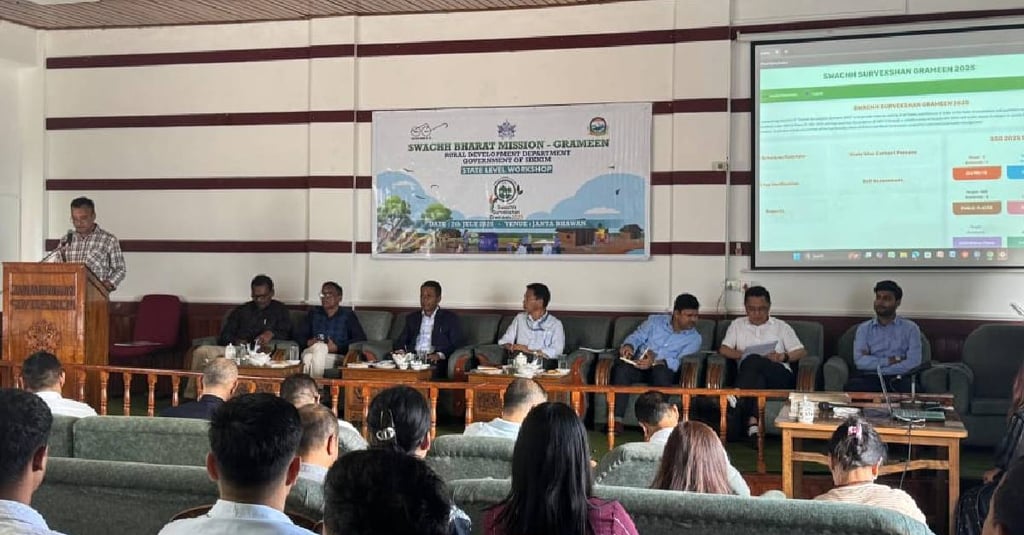Sikkim holds state-level training on Swachh Survekshan Grameen 2025 to strengthen rural sanitation efforts
Officers from across the state attended the training. Present at the event were Additional District Collectors (Development) from the districts of Pakyong, Ravongla, Soreng, Mangan, and Gangtok.
LOCAL


The Rural Development Department of the Government of Sikkim on July 7 organized a one-day state-level training programme on Swachh Survekshan Grameen 2025 at Janta Bhawan in Gangtok. The event was held under the Swachh Bharat Mission (Grameen) to prepare the state for the upcoming nationwide rural sanitation survey.
The programme, hosted by the Swachh Bharat Grameen division of the department, aimed to provide orientation and technical knowledge to officers and officials involved in rural sanitation. The Swachh Survekshan Grameen (SSG) 2025 is an important initiative of the Department of Drinking Water and Sanitation (DDWS) under the Ministry of Jal Shakti, Government of India. It is part of the second phase of the Swachh Bharat Mission - Grameen, which is being implemented from 2020-21 to 2025-26.
The goal of this initiative is to measure the progress of sanitation efforts in rural areas and rank the performance of all States, Union Territories, and Districts based on a set of well-defined sanitation parameters. These include the sustainability of Open Defecation Free (ODF) status and the management of both solid and liquid waste. The survey also focuses on encouraging community involvement, promoting long-term behavioral change, and building awareness about environmental cleanliness in villages.
The programme at Janta Bhawan began with a welcome address delivered by Kush Narayan Chettri, Assistant Director (AD) of the Rural Development Department. He spoke about the importance of the training and highlighted the role of field-level officers in improving rural sanitation indicators. He also urged participants to take full advantage of the technical sessions.
An overview of the Swachh Survekshan Grameen 2025 was then presented by Robin Sewa, Additional District Collector (Development). In his presentation, he explained the purpose of the survey, its structure, and how Sikkim can prepare effectively for it. He emphasized that this year’s survey will play a crucial role in assessing the state’s progress under SBM-G Phase II and in identifying the areas that need further improvement.
The training featured several interactive and technical sessions conducted by experienced resource persons from the Academy of Management & Studies (AMS). These included Syera Das, BK Muzadar, Debasis Mitra, and Debojit Gupta. The experts discussed various components of the survey such as data collection, monitoring indicators, documentation, and the need for coordination between departments and community bodies. They also provided guidance on the use of technology and field-level practices that can help improve the state’s performance in the national rankings.
Officers from across the state attended the training. Present at the event were Additional District Collectors (Development) from the districts of Pakyong, Ravongla, Soreng, Mangan, and Gangtok. Block Development Officers (BDOs), Assistant Directors from all 34 blocks, District Coordinators, and Block Coordinators also took part in the programme. Officers from the Head Office of the Rural Development Department, including AD Tshering Ongmu Lepcha, as well as all staff members under SBM-G were in attendance.
Throughout the day, discussions were held on how to strengthen sanitation activities at the grassroots level. Special focus was laid on ways to improve ODF sustainability, promote solid and liquid waste management (SLWM) and enhance citizen feedback. The training also addressed the importance of documentation and real-time reporting to ensure transparency and accuracy in the survey process.
